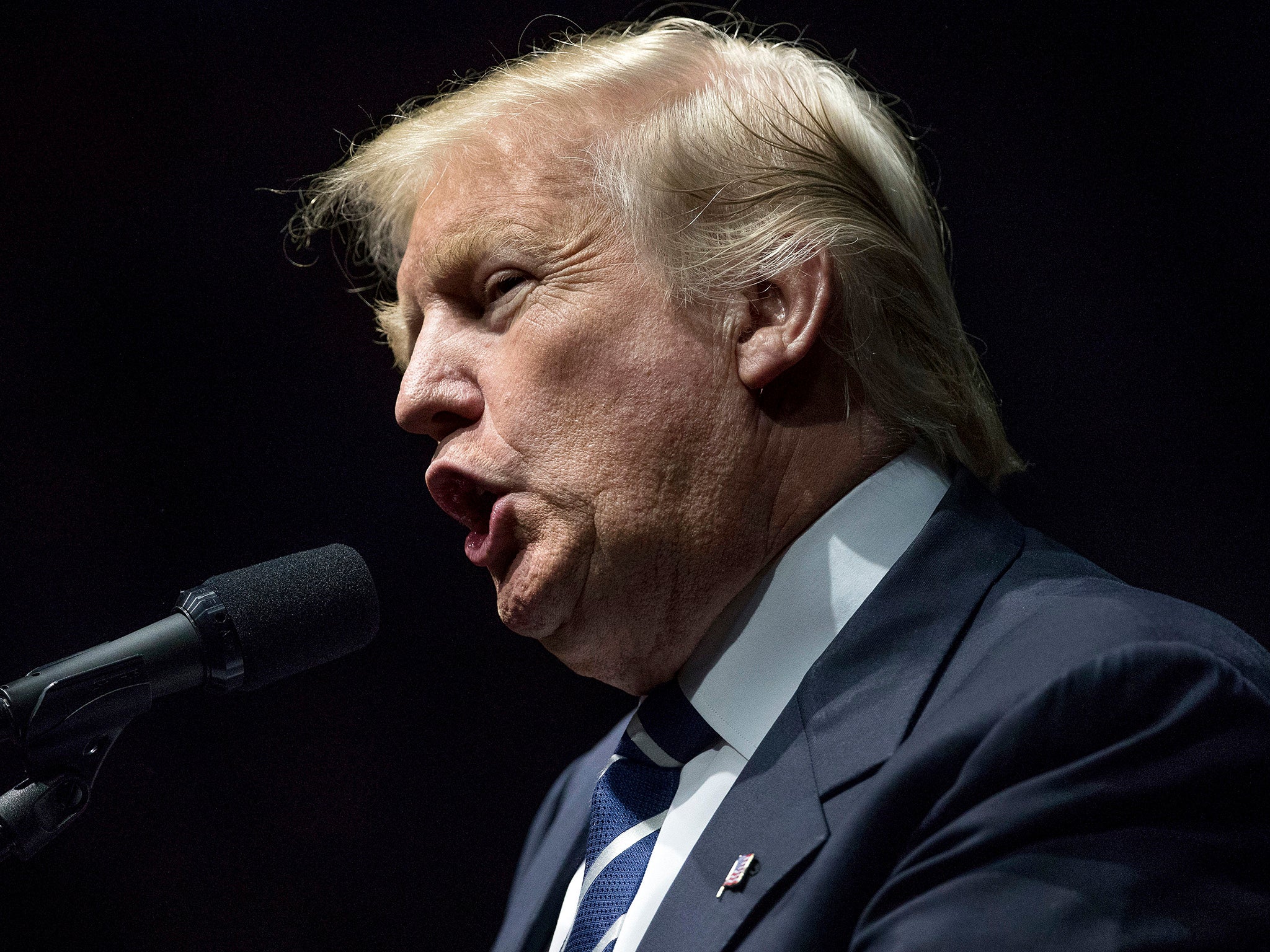Donald Trump to gain total control of US public broadcasting networks
President Trump will hand-pick an executive to control a media empire reaching 226 million people across 100 countries and 61 languages

Your support helps us to tell the story
From reproductive rights to climate change to Big Tech, The Independent is on the ground when the story is developing. Whether it's investigating the financials of Elon Musk's pro-Trump PAC or producing our latest documentary, 'The A Word', which shines a light on the American women fighting for reproductive rights, we know how important it is to parse out the facts from the messaging.
At such a critical moment in US history, we need reporters on the ground. Your donation allows us to keep sending journalists to speak to both sides of the story.
The Independent is trusted by Americans across the entire political spectrum. And unlike many other quality news outlets, we choose not to lock Americans out of our reporting and analysis with paywalls. We believe quality journalism should be available to everyone, paid for by those who can afford it.
Your support makes all the difference.Control of America's entire public broadcasting system is being stripped from an independent board of governors, and handed to an executive hand-picked by the president, thanks to an amendment tacked on to the 1,404th page of a separate Act by Republican politicians.
Multimedia organs such as Voice of America (VOA), Radio Free Europe (RFE) and the Middle East Broadcasting Networks (MBN) will be placed in the hands of an individual directly appointed by President-elect Donald Trump.
Worldwide, the networks controlled by the Broadcasting Board of Governors (BBG) have a weekly, unduplicated audience of 226 million people, across 100 countries and 61 languages.
Though their influence is limited when compared to social media and other news sources, these outlets have previously scored major propaganda victories for the United States.
During the Cold War, Radio Free Europe pushed an anti-Soviet message and fomented revolutions from Hungary to Romania. It attracted fierce criticism in 1956 after falsely suggesting to Hungarian revolutionaries that they would receive US military aid, but also disseminated crucial information following the Chernobyl nuclear diaster.
RFE continues to disseminate broadcasts in 21 countries, including Russia, Iran, Iraq and Afghanistan. Al-Hurra, an MBN television channel broadcasting across the Arab world, was recently listed as the fifth most-viewed TV station in Iraq, while VOA attempts to intervene through radio broadcasts from Cuba to Tibet.
However, the influence of these projects has now diminished compared to when they were at their Cold War zenith. Al-Hurra, for example, nets less than a 2% audience share across the Arab World.
The BBG has repeatedly ranked as one of the very worst-managed federal government agencies.
In 2013, an inquest found it was a "dysfunctional" body, where one board member's "tactics and personal attacks on colleagues and staff have created an unprofessional and unproductive atmosphere" and "board dynamics are characterised by a degree of hostility that renders its deliberative process ineffectual.”
The outgoing Obama administration was therefore happy to wave through reforms. But the BBG was created to act as a firewall between the government and the various media outlets it oversees.
And with Donald Trump heading to the White House, a figure such as Steve Bannon - the media guru described as a "white nationalist" by his critics - could be handed total control of this significant media empire.
Republican House leaders from the Senate and Congress made the change in section 1259D on the 1,404th page of their annual National Defense Authorization Act.
Join our commenting forum
Join thought-provoking conversations, follow other Independent readers and see their replies
Comments